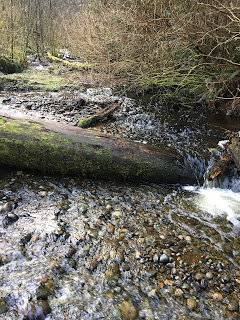Sometimes I’m away from home for a while- whether on vacation or just so busy at work that I just sort of zip through the house and go back out – and when I finally get time to be at home it doesn’t feel right. Often the bench by my front door is piled with stuff brought home from my adventures and I suspect there are things in the back of my fridge that might provide the basis for a good science experiment. Instead of feeling comfy and safe, being home becomes unpleasant and stressful.
Have you ever had a moment of panic when you realize you are going to be alone? It occurs to me that this dread of being alone is not so different from my dread of looking in the back of the fridge. When I am busy with meetings and work or family, (or just sucked into my Facebook feed) experiences and feelings pile up inside me and I “get behind” in my inner work. I’ve come to believe that when I get that moment of aversion about being alone, it’s a good indicator that there’s something inside me that needs my attention. And just like with my fridge, it’s not getting any fresher.
Whether I am dreading being alone or dreading going home to a home full of unfinished projects, the solution is the same; only time spent there will make it feel like home again. I might put on my favorite music, fix myself a nice cup of team and give myself a good chunk of time to reclaim my home. Sometimes this is all we need, just time to reacquaint ourselves as we would with an old friend. And if it doesn’t feel right, I can ask myself why? What needs my attention? If something in my home or in my spirit doesn’t feel right, I must be brave and go in there. Ah, here’s the handful of shells my family gathered as we walked the beach on our vacation. How lovely they are- time to find a permanent place where I can see them. Here’s the bag we keep by the door all summer in case we want to go to the pool – I guess it’s time to put that away for next year and get ready for the change of seasons. Here are the bills I need to pay. I’ll set them here by the checkbook so I don’t forget they still need my attention. Oh my, that’s where the smell was coming from – that stew I made that turned out badly. Time to admit no one is going to eat it; time to let go of that regret- into the trashcan with you! Long before the house is clean, it starts to feel like it’s mine again.
Whether we are reclaiming our outer home or our inner one, sometimes we fear coming across something that is too much for us. In both cases, remember that help is available. When we realized our air conditioner had been leaking into the wall for over a month, I was afraid to find out how much damage the water had done, so I asked my friend who is handy to come look at it with me. The same is true if I realize I am afraid to feel a great loss or grief, or rage- I would call a friend or a professional who is handy with such things, and ask them to look at it with me. If we are the praying sort, we can also bring our worries and messes to the divine- Remember the psalmist tells us:
… you have searched me and known me.The divine already knows about the moldy stew in the back of our refrigerator (both literally and metaphorically), and knows about the water damage in our walls, and the un-shed tears in our hearts. We don’t have to wait to have a clean house to invite the spirit to tea.
You know when I sit down and when I rise up;
you discern my thoughts from far away.
… and are acquainted with all my ways. [Psalm 139]
So the next time you dread being alone, might I suggest that spending some time in solitude (your inner home) might be the best thing you could do for yourself and your spirit. It might mean the inward journey is calling to you. Because once you’ve thrown out all the things that need to be discarded, all that’s left is healthy delicious food- maybe everything you need to make dinner, and your favorite dessert besides.



.jpg)




